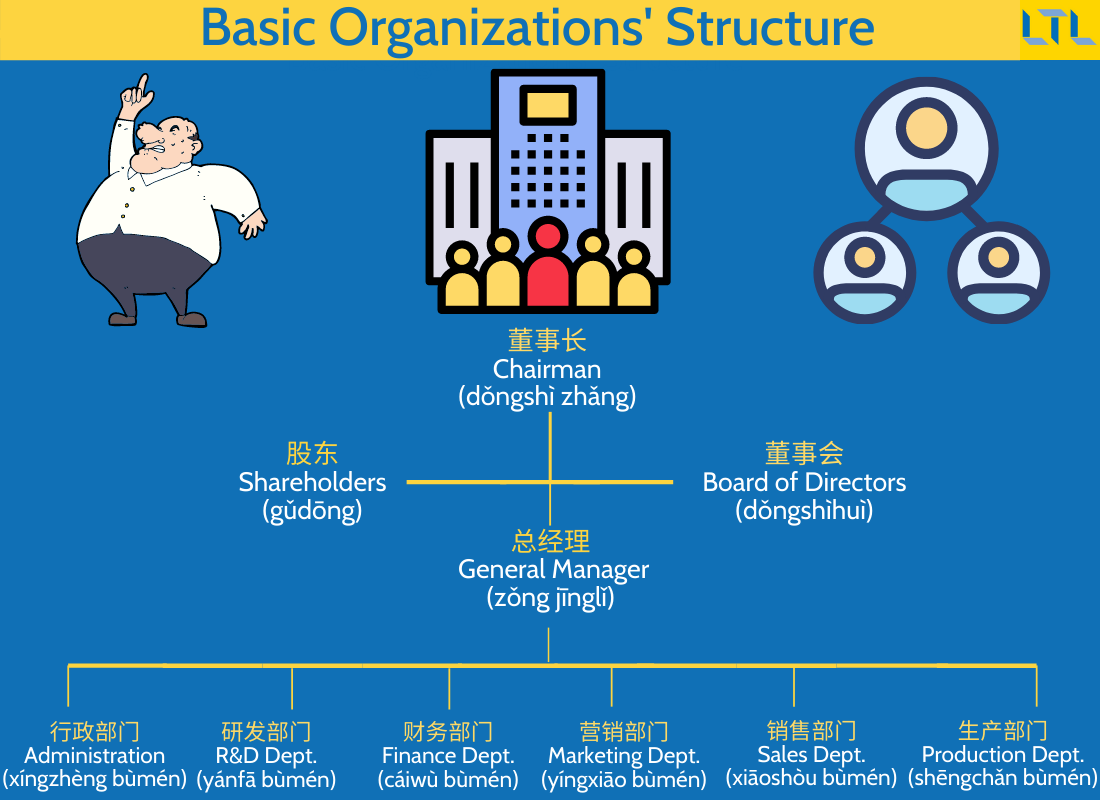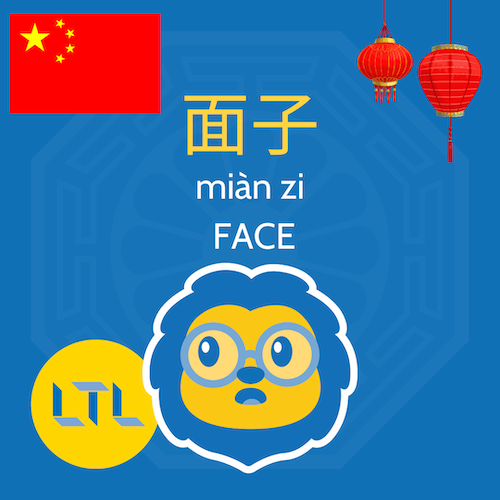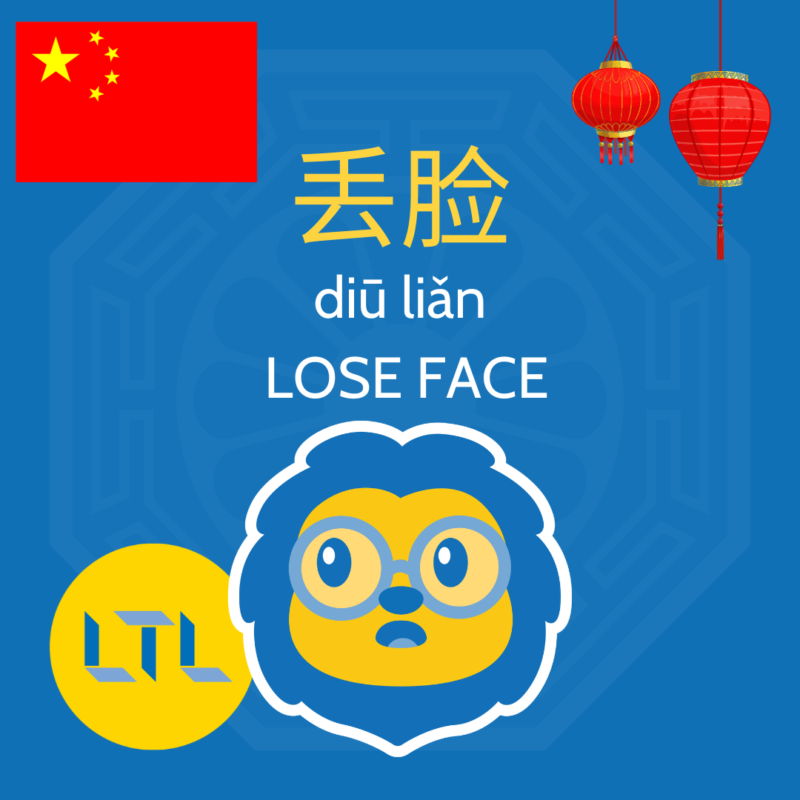Working for Chinese Companies vs Western Companies || What’s the Difference?
From eating out to communicating, everything you do in China teaches you something new about the culture.

Having lived in China for four years, eaten at tons of restaurants and made a bunch of local friends, I was pretty confident that nothing could surprise me…
… Until I started working at a Chinese company (公司 gōngsī).
From my first day until the last, I experienced a whole new insight into Chinese culture.
In this article, I explain it all — from what to expect to how to behave. 开始吧!
Working for a Chinese Company || Chinese Attitudes Towards Work
Working for a Chinese Company || The Chinese Workday
Working for a Chinese Company || The Lunch Break
Working for a Chinese Company || Navigating the Hierarchy
Working for a Chinese Company || Communication Styles
DON’T DO THESE || 8 Mistakes to Avoid
BONUS CONTENT || CV and Email Templates
Working for a Chinese Company || FAQ’s
Working for a Chinese Company || Attitudes Towards Work
If you’ve read or watched anything about Chinese work culture, you probably know that the Chinese have a strong work ethic.
This can partly be largely attributed to Confucianism, which promotes hard work and persisting through hardship (吃苦 chīkǔ) as an individual’s way of contributing back to society.
But cultural values aren’t the only reason behind the country’s diligent workforce.

China’s job market is extremely competitive, with millions of talented graduates (毕业生 bìyè shēng) all vying for positions at prestigious companies.
Securing a white-collar job (白领工作 báilǐng gōngzuò) is a huge achievement, and it’s not an opportunity most people are willing to jeopardise.
DID YOU KNOW | This creates an environment where overtime (加班 jiābān) isn’t only common; it’s expected.
So, while all companies have an official 8-hour working day, it’s rare for most people to actually leave the office on time.
(NOT SO) FUN FACT | One 2018 study showed that over 42% of Chinese employees regularly work late!
So, what’s it actually like working for a Chinese company?
Working for a Chinese Company || The Work Day
The Chinese workday typically begins between 8 – 9am and officially finishes between 5:30 and 7pm.
BUT, and it’s a big but, depending on the employee’s role, they could be in the office (办公室 bàngōngshì) until as late as 10 pm!
As a foreigner, I wasn’t expected to stay late at my company, but many of my Chinese colleagues would be there well into the evening.
Some would even occasionally pull an all-nighter! True story
It was interesting to see that while many western companies are shifting towards a flexible work structure based on productivity rather than time, Chinese companies are firmly sticking to tradition.


Most operate a clock-in, clock-out system on mobile apps that allow you to 打卡 dǎkǎ (punch in/out).
These can detect when you enter the campus or office, which is great for tracking your attendance but not so great if your train’s late!
The overtime culture means the work day is long and tiring for most Chinese staff.
So, to make sure they have enough energy to make it through, lunch breaks tend to be surprisingly long.
Ever Heard of 996?
Bonus content klaxon here 📣

Every heard of the Chinese slang term 996? It’s become all the rage in recent years. Let me explain:
- 9 – 9am start
- 9 – 9pm finish
- 6 – 6 days a week
This is a fairly common concept in China (mainly in tech companies or startups) and for those of you not so keen on maths, that’s 72 hours every working week, with just Sunday off to enjoy.
And guess what 996 workers generally like to do on a Sunday… yep you guessed it! Sleep 😴

Occupations in Chinese 👩🏾⚕️ A Complete List of 61 Job Titles in Mandarin
Discover 61 Jobs and Occupations in Chinese (PLUS FREE Quiz) When first meeting someone in China it’d be handy to know how to say your occupation in Chinese. Think about it, you meet someone new, how does the conversation go?…
Working for a Chinese Company || Lunch Break
The lunch break (午休 wǔxiū) typically starts between 11:30am and ends around 1:30 – 2pm.
As soon as the clock strikes lunch, desks empty as people flock to the canteen (食堂 shítáng) or nearby restaurants.
Since it’s quite cheap to eat out and most office canteens are subsidised, it’s far more common for people to buy lunch than bring their own.
Those working overtime often eat dinner there, too!
Interestingly, although everyone is super busy, it’s extremely rare for anyone to work through lunch.


So, what do they do with all that time?
For most, the answer is to take a post-lunch nap!
I knew nothing about this habit before I started my job.
So it was a huge surprise on my first day to see the entire office turn into a campsite as thousands of employees unfolded camp beds, pulled out blankets and pillows and turned the lights out!
It turns out that the 午睡 wǔshuì (afternoon nap) is a sacred part of the Chinese work day. It’s actually rude to continue working and making noise while people are taking a well-earned nap!
I should probably mention that the company I worked for took afternoon naps to the extreme with beds and pillows.
Other companies encourage staff to nap at their desks instead.
But don’t be surprised if you see your colleague (同事 tóngshì) with a camp bed!

Chinese Resume 📝 The Ultimate Guide to Writing Your CV in Chinese!
Ever wondered how to write your CV in Chinese? Well, your ultimate guide is finally here to help you progress your career!
Working for a Chinese Company || Navigating the Hierarchy
The Chinese workplace is extremely hierarchical.
It’s uncommon for employees to question their superiors, even if they see a better way of doing things.
Of course, that depends on your level of experience, your role and the type of company you work for.
But any type of pushback is generally frowned upon due to the concept of ‘face’ 面子 (miànzi).

If you were to disagree with your manager (领导 lǐngdǎo), especially in front of your colleagues, you’d cause them to 丢脸 diūliǎn (lose face).
And that could seriously harm your working relationship.

The good news is that 面子 works both ways.
If you were to make a mistake, your manager would likely deal with this in private rather than calling you out in front of other employees.
Luckily, I knew this before I went in, so I didn’t make any 面子 related mistakes.
Another concept to keep in mind when working at a Chinese company is 关系 guānxì.
Think of 关系 as your network — the relationships you build that help you succeed in work and business.
The concept hinges on the idea that if someone does you a favour, you should reciprocate accordingly.
FOR EXAMPLE | If a colleague helps you with something that falls outside the remit of their work, you should make sure to remember it and be willing to step up next time they need a hand with something.
Working for a Chinese Company || Communication Styles
One of the biggest challenges I found working in a Chinese company was adjusting to the communication style.
IMPORTANT | Things tend to be communicated at the last minute, so it’s not uncommon for tasks (任务 rènwù) and deadlines to be set with very little notice.
Equally, plans change fast, meaning something you were expecting to work on could suddenly be cancelled.
If you’re used to autonomy or long-term projects, this could be a shock. As someone who enjoys managing their own time and workload, it certainly was for me.
But I quickly learnt that it’s all part of the experience and not something I could change (trust me, I tried).
The communication style wasn’t the only big surprise, though. The platforms they use are different, too.
Unlike western companies who prefer to use email, the Chinese opt for instant messaging tools instead.


This can make it hard to concentrate because instant messages usually demand instant responses.
I was lucky to work for a company that had its own internal messaging system, but a lot of organisations use WeChat to discuss business matters.
This can make finding a healthy work-life balance difficult, and it can be annoying if you like to switch off after work until the next day (most of us, right?)
DID YOU KNOW | It’s also common for colleagues to communicate using emojis and stickers (like gifs).
There doesn’t seem to be as clear a distinction between who you should and shouldn’t send them to as there is in other cultures.
So, I’d frequently receive animated kiss emojis, hearts and hugs from my 领导.
It was weird at first, but I soon learnt to roll with it!


8 Mistakes to Avoid
So we’ve given you a rundown on how Chinese company culture can differ from it’s western equivalent, so what should you do next?
First and foremost – don’t fear! It’s different, but you get used to it.
If you are aware of those cultural differences and respect them you’ll be fine… oh and avoid doing these 8 things whilst you’re at it!
Mistake #1 || Making a Show of Leaving Early
Mistake #2 || Being Loud During the Lunch Break
Mistake #3 || Pushing Back
Mistake #4 || Getting Annoyed at the Pace of Change
Mistake #5 || Saying No to Your Manager
Mistake #6 || Skipping Team-Building Events
Mistake #7 || Taking Advantage of Your Status as a Foreigner
Mistake #8 || Complaining About Chinese Work Culture
Don’t Make a Show of Leaving Early
As we’ve learnt, it’s no secret that the Chinese work long hours.
Although the government stepped in to address the issue of excessive overtime in recent years, few people actually leave the office on time.
Except for foreigners, that is!
While it’s almost universally accepted that we play by different rules, you shouldn’t make a show of your exceptionalism.
Your Chinese colleagues are unlikely to voice their opinions about working late, but that doesn’t mean they’re choosing to.
So, make sure to be respectful and slip out quietly when you reach the end of your working day.
Don’t be Loud During Lunch
Most foreigners working in Chinese companies will agree that one of the quirkiest parts of the workday is the afternoon nap.

If you’re not from a culture that values a post-lunch snooze, you might consider this a totally unnecessary waste of time.
But it’s perfectly normal for your colleagues, who have enjoyed it since their school days.
So, if you were thinking of using this time to get a head start on your tasks for the afternoon, don’t.
Making noise during the 午休 is a surefire to annoy the entire office.
Instead of making enemies, we recommend using this time to read, go to the gym or relax with other non-nappers.
Or, who knows, you may even be grateful for the opportunity to sleep at work without getting fired for it!
Don’t Push Back
The Chinese typically don’t like confrontation, so you’ll need to be tactful when dealing with work-related issues.
It goes without saying that screaming or being aggressive is a big no-no, but so is calling out problems in a direct way.

By directly addressing a shortcoming with someone’s behaviour, idea or work, you risk causing them to lose face (丢脸 diūliǎn).
And that can seriously damage your working relationships.
So, if you come across a problem at work, be careful not to speak up or push back as you might at home.
Instead, take a second to consider if it’s really worth addressing.
If it is, do so calmly, delicately and in private. Avoid being too direct, and phrase it positively as best you can.
Don’t Get Annoyed at the Pace of Change
Things change fast in China, and the workplace is no exception.
Unlike in the west, where forward planning is valued, Chinese culture considers time to be flexible.
It’s believed that everything — no matter how important or trivial — can be dealt with as and when it arises.
So, don’t be surprised if you receive tasks due the same day with no warning.
This can be challenging to adjust to, but you kind of don’t have a choice.
If you try asking your manager to give you a heads-up before a busy period, you’re likely to confuse them.
Things just don’t work the same way, and you won’t be able to change it, no matter how much you complain.
Our advice? Learn to take everything as it comes, don’t stress and use it as an opportunity to sharpen your time management skills.

What Is Panda Diplomacy & How Does It Work? 🐼
Can you really send a panda as a gift? Discover the meaning behind panda diplomacy and the history of sending pandas abroad to other countries from China.
Don’t Say No to Your Manager
Don’t say no to your manager
The Chinese workplace has a strict hierarchy, which you’re expected to abide by.
Whereas western companies tend to value new ideas and out-of-the-box thinking, Chinese employers like for staff to fit in and go with the flow.
In other words, if you don’t agree with an idea or see a better way of doing something, be wary of making suggestions — they may not be well received.
Of course, if you’ve accepted a role that requires you to offer feedback and spot areas for improvement, this probably doesn’t apply.
But generally speaking, if your manager suggests a new idea, you should agree with it, even if it’s the silliest thing you’ve ever seen.
The same applies if they ask you to help with something. Unless it’s completely unreasonable, you’re best off saying yes if you want to maintain good guanxi.


Don’t Skip Team-Building Events
IMPORTANT || Teamwork (团队协作 tuánduì xiézuò) is extremely important in Chinese culture.
The country’s collectivist values mean that colleagues and teams are seen as big families.
To strengthen the bond between team members, companies often run team-building events (团建活动 tuán jiàn huódòng).
These can range from group meals to entire-day activities.
Whatever your company organises, try to attend.
Showing a willingness to join in and get to know your colleagues is a great way to break down barriers, form friendships and build some serious guanxi!
When you do, you’ll be rewarded with a supportive network of people who’ll have your back inside and outside work.
Who doesn’t want that!?
Don’t Take Advantage of Your “Foreign Status”
In the same way that you won’t be expected to work overtime (加班 jiābān) like your Chinese colleagues, you may also not be held to the same standards in terms of your work.
Again, this relates to the idea that foreigners don’t follow the same rules.

That’s not to say you can get away with doing a bad job, but you may find that your deadlines and workload are more flexible than those of your colleagues.
Whatever you do, don’t take this as an opportunity to slack off.
Your hard work may not be rewarded in the same way as you’re used to, but it will be noticed and appreciated.
So, unless you’re drowning under a pile of tasks or racing to meet unrealistic deadlines, and it’s causing you stress, work as hard as you would in any other company.
It’ll pay off!
Don’t Complain About Chinese Work Culture
By now, you’ve probably realised that Chinese work culture is very different to what you may be used to.
While it’s extremely rewarding to work in a different cultural environment, there’s no denying that it can sometimes be super frustrating.
Whether it’s the culture of overtime, the afternoon naps, the communication style or the hierarchy that bugs you, make sure you don’t complain to your Chinese colleagues.
This might be a fun, interesting experience for you. But it’s your colleagues’ everyday lives, and moaning about it might offend them.
When you need to vent (because, yes, it’s inevitable!), make sure to do it to other foreigners.
Otherwise, learn to live with the frustrations and navigate the differences, and you’ll have a much more enjoyable experience.


Working in a Chinese company was an eye-opening experience that taught me so much about the culture.
There is a clear difference when discussing Chinese companies vs Western companies but as long as you understand those differences – you’ll be just fine!
Although I personally wouldn’t want to build my entire career working solely for a Chinese company, I’m really glad I tried it for a year.
If you’re looking to immerse yourself in China in a unique way, I’d definitely recommend doing the same.
If nothing else, you’ll make valuable connections, pick up more of the language and add a really cool experience to your resume.
BONUS || Email and CV Templates
Perhaps you are just about to start looking for a job in China? Or maybe you’ve just landed the big role and want to brush up on your email skills?
You’re in luck…
We’ve already prepared some excellent content for you including:
- If you want to know the important parts for writing an email in Chinese, we’ve got just the guide.
- We’ve even written up some example emails and broken the down for you here.
- Discover how to write a killer CV in Mandarin.
- Download our FREE CV templates in Mandarin here.
- Learn how to write a perfect cover letter in Mandarin.
- Download our FREE cover letter template in Mandarin.
That concludes our look at working at a Chinese company – we hope this guide was useful.
Would you consider working at a Chinese company? Tell us below!
Working for a Chinese Company || FAQ’s
What is 996 in Chinese cultural slang?
Every heard of the Chinese slang term 996?
It’s become all the rage in recent years. Let me explain:
9 – 9am start
9 – 9pm finish
6 – 6 days a week
This is a fairly common concept in China (mainly in tech companies or startups) and for those of you not so keen on maths, that’s 72 hours every working week, with just Sunday off to enjoy.
And guess what 996 workers generally like to do on a Sunday… yep you guessed it! Sleep 😴
Is 面子 important in Chinese working culture?
Yes!
If you were to disagree with your manager (领导 lǐngdǎo), especially in front of your colleagues, you’d cause them to 丢脸 diūliǎn (lose face).
And that could seriously harm your working relationship.
The good news is that 面子 works both ways.
If you were to make a mistake, your manager would likely deal with this in private rather than calling you out in front of other employees.
What should I be aware of when working for a Chinese company?
关系 guānxì is vital to maintain when working for a Chinese company.
Think of 关系 as your network — the relationships you build that help you succeed in work and business.
The concept hinges on the idea that if someone does you a favour, you should reciprocate accordingly.
FOR EXAMPLE | If a colleague helps you with something that falls outside the remit of their work, you should make sure to remember it and be willing to step up next time they need a hand with something.
Do Chinese really sleep at work?
It really is a thing and it has a name – 午睡 wǔshuì (afternoon nap)
This is a sacred part of the Chinese work day.
It’s actually rude to continue working and making noise while people are taking a well-earned nap!
What is a key difference with Chinese companies vs Western companies?
The Chinese workday typically begins between 8 – 9am and officially finishes between 5:30 and 7pm.
BUT, and it’s a big but, depending on the employee’s role, they could be in the office (办公室 bàngōngshì) until as late as 10 pm!
This is more common in China than you’d find in Europe or the Americas.
Some companies in China would encourage staff to pull an all-nighter! True story
While many western companies are shifting towards a flexible work structure based on productivity rather than time, Chinese companies are firmly sticking to tradition.
Want more from LTL?
If you wish to hear more from LTL Mandarin School why not join our mailing list.
We give plenty of handy information on learning Chinese, useful apps to learn the language and everything going on at our LTL schools!
Sign up below and become part of our ever-growing community!


 Hi, my name is Mojca. I am from Slovenia in Europe and I work as a student advisor at our Beihai school.
Hi, my name is Mojca. I am from Slovenia in Europe and I work as a student advisor at our Beihai school.





2 comments
I am.looking forward to work for wanhua chemicals .
Good luck!